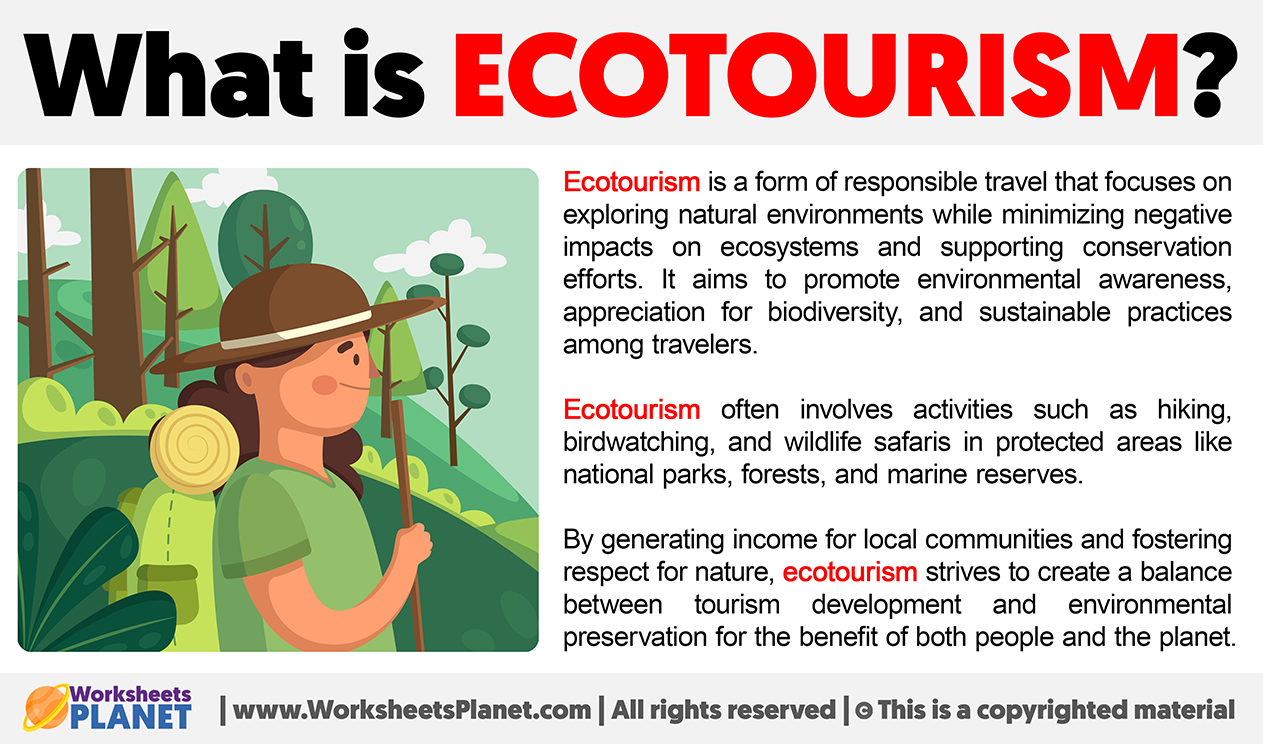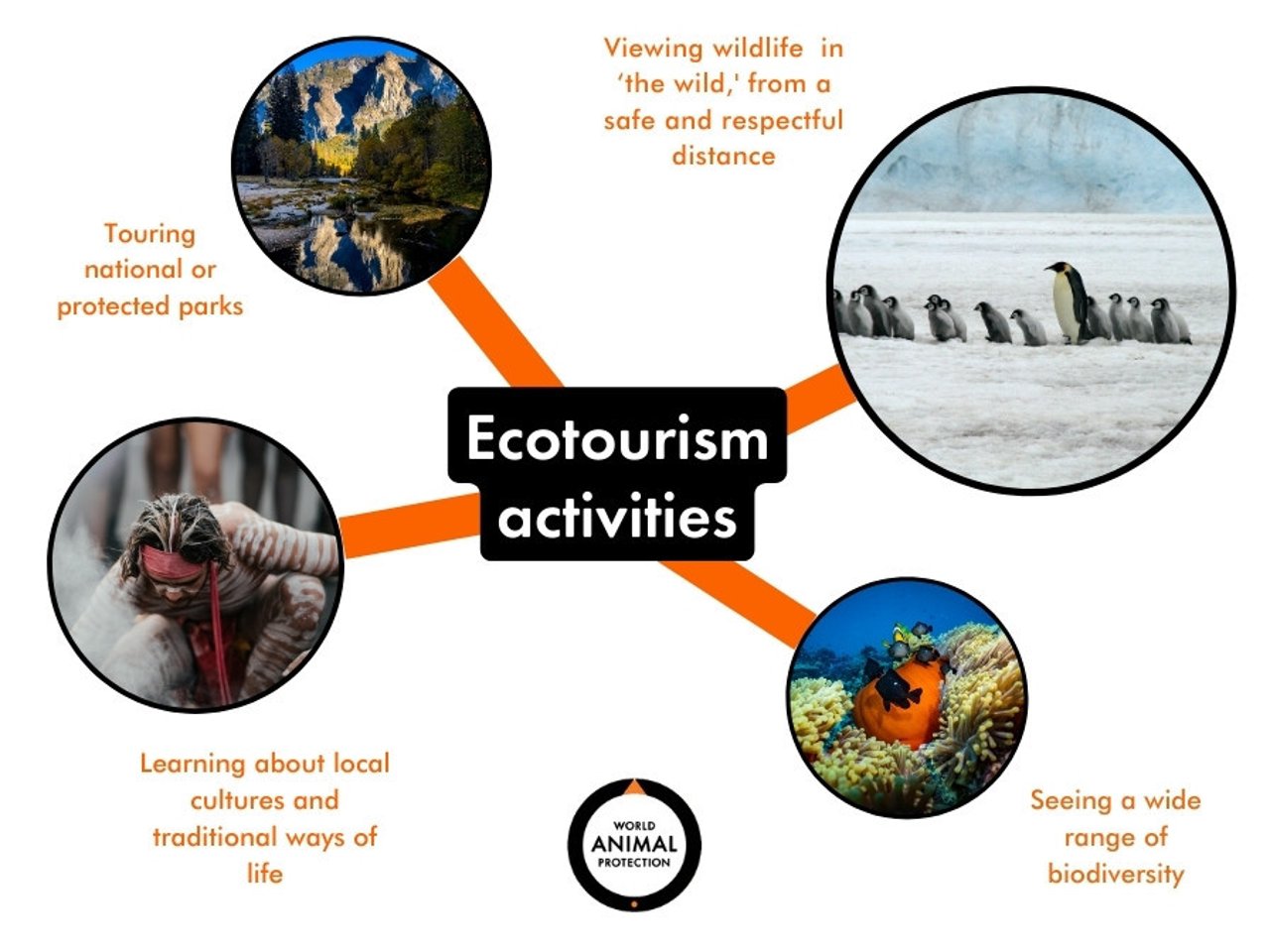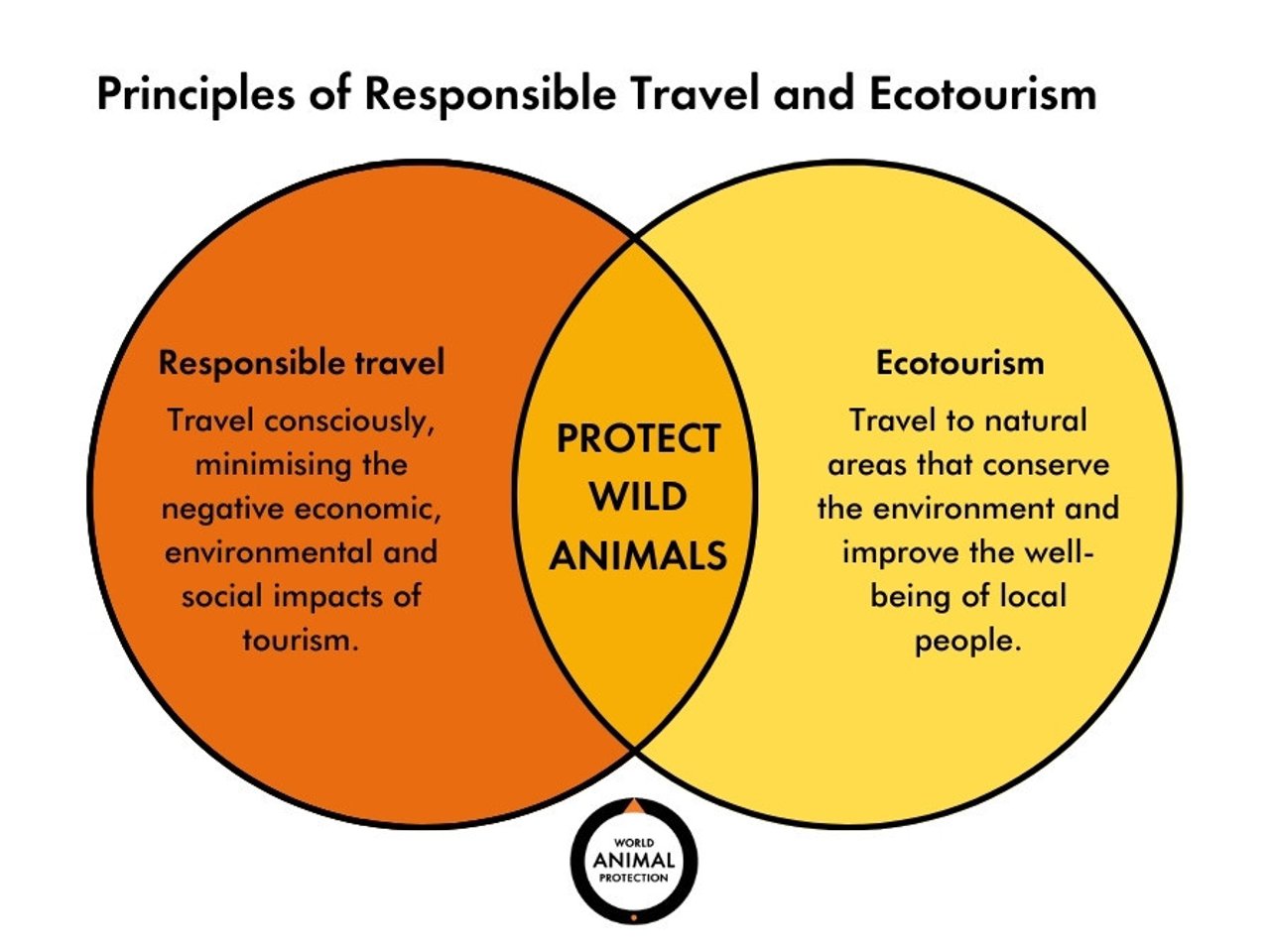The Enchanting Embrace: Deciphering the Meaning of Nature tourism
Nature tourism, a concept that has blossomed from a niche interest into a global phenomenon, represents far more than simply visiting scenic landscapes. It embodies a conscious interaction with the natural world, fostering appreciation, conservation, and sustainable practices. This exploration delves into the multifaceted meaning of nature tourism, dissecting its core principles, diverse forms, and profound impact.
At its heart, nature tourism is driven by a desire to experience and connect with the natural environment. It distinguishes itself from mass tourism by prioritizing:
Environmental Sustainability:

Minimizing ecological impact is paramount. This involves responsible waste management, reduced carbon footprints, and adherence to established carrying capacities.
Conservation and Education:
A crucial aspect of nature tourism is raising awareness about environmental issues and promoting conservation efforts.
Benefiting Local Communities:
Nature tourism should empower local communities, providing economic opportunities and fostering cultural exchange.
Responsible Travel Practices:
Travelers are encouraged to adopt responsible behaviors, such as respecting wildlife, minimizing disturbance, and adhering to park regulations.

Nature tourism encompasses a wide range of activities, each offering unique opportunities for immersion in the natural world:
Wildlife Tourism:
This involves observing animals in their natural habitats, from whale watching and birdwatching to safaris and primate trekking.
Ecotourism:
Ecotourism is a subset of nature tourism that emphasizes environmental responsibility and community benefits.
Adventure Tourism:

This combines nature-based experiences with physical challenges, such as hiking, kayaking, rock climbing, and white-water rafting.
Agritourism:
Agritourism is a style of vacationing on farms, ranches, and other agricultural operations.
Geotourism:
Geotourism is defined as tourism that sustains or enhances the geographical character of a place—its environment, heritage, aesthetics, culture, and the well-being of its residents.
Forest Tourism:
Forest tourism involves visiting forests for recreational, educational, or spiritual purposes.
Nature tourism has the potential to generate significant positive impacts, both for the environment and for local communities:
Economic Benefits:
Nature tourism can create jobs and generate revenue for local economies, particularly in rural and remote areas.
Environmental Conservation:
Nature tourism can raise awareness about the importance of biodiversity and ecosystem services, fostering a culture of conservation.
Social and Cultural Benefits:
Nature tourism can promote cultural exchange and understanding, fostering respect for diverse cultures and traditions.
Educational Opportunities:
Nature tourism can be an excellent way to learn about the natural world.
Despite its potential benefits, nature tourism also faces challenges:
Over-tourism:
Popular destinations can experience overcrowding, leading to environmental degradation and negative impacts on local communities.
Greenwashing:
Some tourism operators may falsely claim to be eco-friendly, misleading consumers and undermining genuine efforts to promote sustainable practices.
Cultural Impacts:
Tourism can sometimes lead to the commodification of culture, with traditional practices being altered or exploited for tourist consumption.
Wildlife Disturbance:
Irresponsible wildlife tourism can disturb animals, disrupt their natural behaviors, and even lead to their harm.
Nature tourism is poised to play an increasingly important role in the 21st century. As awareness of environmental issues grows, so too does the demand for responsible and sustainable travel experiences. To ensure a positive future, the following considerations are vital:
Technological Integration:
Technology can be used to enhance the visitor experience, provide educational resources, and monitor environmental impacts.
Community Empowerment:
Local communities should be actively involved in the planning and management of nature tourism initiatives.
Policy and Regulation:
Governments should implement policies and regulations that promote sustainable tourism practices and protect natural areas.
Education and Awareness:
Raising awareness about the importance of nature tourism and responsible travel practices is crucial for fostering a culture of sustainability.
Nature tourism, at its best, is a transformative experience, fostering a deep connection with the natural world and inspiring a commitment to conservation. It is a powerful tool for sustainable development, offering economic opportunities, environmental protection, and cultural enrichment. By embracing responsible practices and prioritizing sustainability, we can ensure that nature tourism continues to thrive, benefiting both people and planet.



